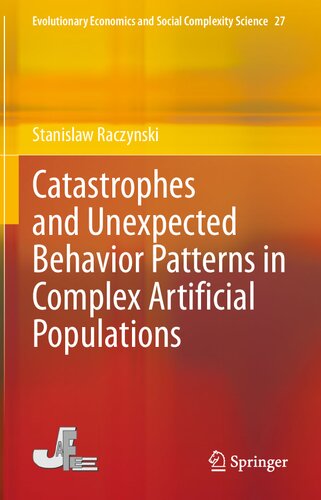

Most ebook files are in PDF format, so you can easily read them using various software such as Foxit Reader or directly on the Google Chrome browser.
Some ebook files are released by publishers in other formats such as .awz, .mobi, .epub, .fb2, etc. You may need to install specific software to read these formats on mobile/PC, such as Calibre.
Please read the tutorial at this link: https://ebookbell.com/faq
We offer FREE conversion to the popular formats you request; however, this may take some time. Therefore, right after payment, please email us, and we will try to provide the service as quickly as possible.
For some exceptional file formats or broken links (if any), please refrain from opening any disputes. Instead, email us first, and we will try to assist within a maximum of 6 hours.
EbookBell Team

0.0
0 reviewsA major objective of this monograph is to present an agent-based simulation of artificial populations. The focus is on possible unexpected or catastrophic events that may spontaneously appear in simulations. A short recall of the tenets of the theory of catastrophes is given. Several examples of artificial society simulations are provided as the main topic of the book. With agent-based modeling, possible catastrophes and unexpected events in artificial populations are simulated. The book presents a new modeling and simulation tool, applied to social system simulation. The models are coded in the object- and agent-oriented language Bluesss (Blues Simulation System), related to the C++ language. The program code consists of a series of generic declarations of processes. Each of them includes a number of events that are coded in C++. At the runtime, a population of objects is generated. All the objects (agents) start to execute their own events, and interact with one another. During the simulations it is possible to observe the macro-behavior of the population, where some unexpected or "catastrophic" events occur. The examples include a stock market crash, catastrophes in extended prey–predator systems, growing organisms and cancer, epidemics, social inequality and economic decay, mass-service systems, and more. Remarks on possible simultaneous events are also included.